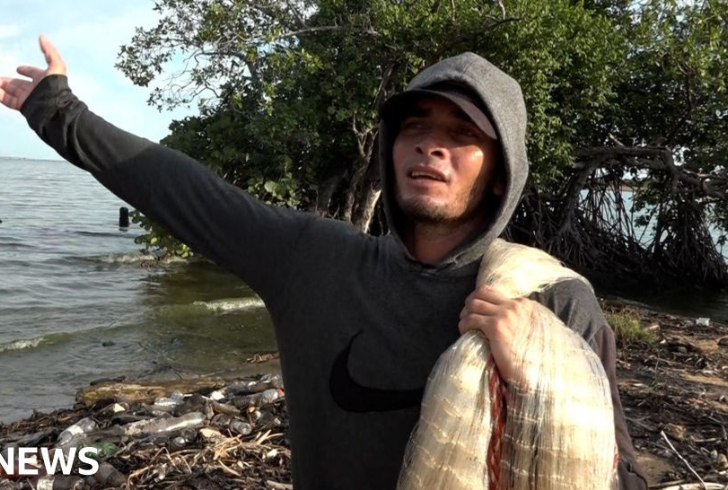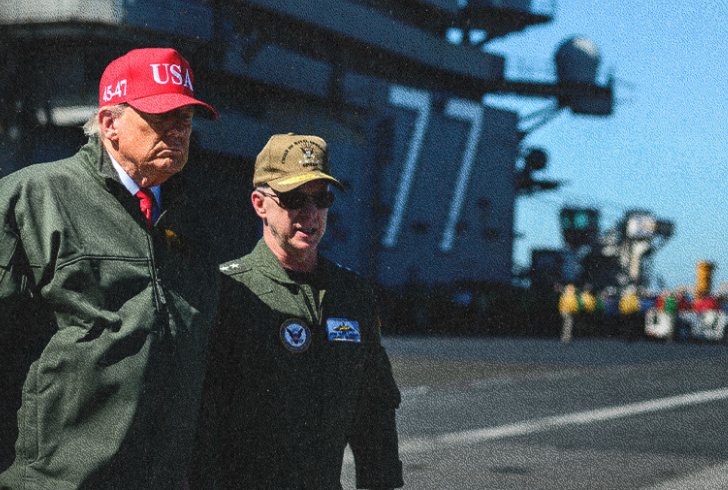Wilder Fernández pulls in four sizable fish from a small bay north of Lake Maracaibo. These fish will feed his team before they head out to fish again in the evening. But this routine has become risky and stressful.
After 13 years as a fisherman, Fernández now fears for his life. Not from pirates or nighttime attacks he has faced before, but from U.S. military strikes in the Caribbean. U.S. warships, fighter jets, submarines, and thousands of troops near Venezuela’s coast have turned fishing into a dangerous job.
The U.S. says its operation targets “narco-terrorists” allegedly linked to Nicolás Maduro’s government. Since September 2, U.S. strikes on so-called “narco-boats” have killed at least 27 people. While the U.S. claims these vessels were involved in drug trafficking, evidence has not been shared. Experts question whether the strikes are legal under international law.
Tensions rose further when U.S. President Donald Trump mentioned possible strikes on Venezuelan soil. He also authorized the CIA to carry out covert operations within the country.
Fishermen Face New Risks

Many fishermen are hesitant to go out to sea. They worry their boats could be mistakenly targeted. Fernández says his wife urges him every day to quit fishing, but work options are limited. “Of course, it worries me, you never know. I think about it every day,” he says.
The U.S. released images of the attacked boats, claiming links to narcotics smuggling. Trump’s administration accuses Maduro of leading the Cartel of the Suns. They have offered $50 million for information leading to his capture. Maduro denies the claims. He calls it a political move and appeals for peace with the U.S.
Meanwhile, Venezuela’s Defense Minister, General Vladimir Padrino, warned citizens to prepare “for the worst.” He mentioned possible aerial bombings, naval blockades, drone swarms, sabotage, and targeted killings. Venezuela also raised these concerns at the UN Security Council. U.S. representatives confirmed their commitment to act against narcoterrorism.
Impact on Local Fishing Communities
The attacks have shaken Venezuela’s fishing industry, which employs over 115,000 people. Jennifer Nava, spokeswoman for the Council of Fishermen in El Bajo, says fishermen fear being caught in crossfire. She adds that these dangers could push some into helping drug traffickers.
Usbaldo Albornoz, who runs two small fishing boats, reports that many employees refused to fish after the news of U.S. strikes. Oil spills, piracy, declining earnings, and now military threats make fishing increasingly risky.
A leaked memo from the Trump administration described the operations as part of a “non-international armed conflict” with drug traffickers. They framed the strikes as acts of self-defense.
Resistance and Defiance

Despite fear, some fishermen show defiance. At the end of September, hundreds protested the U.S. military presence on Lake Maracaibo. José Luzardo, a spokesperson for fishermen of El Bajo, expressed loyalty to Venezuela. He called the U.S. actions a “military barrier” in the Caribbean. More than 16,000 fishermen joined the government’s militia mobilization.
Luzardo, fishing since age 11, says, “If they [the U.S.] want to kill us, then so be it, but we’re not afraid.” His words reflect both courage and frustration. Fishermen want peace and work, but face threats beyond their control.
Rising Tensions and Industry Challenges
The fear of U.S. strikes adds to long-standing challenges in Venezuela’s fishing sector, including piracy, environmental hazards, and economic instability. For Fernández, Albornoz, and Luzardo, daily life now means navigating danger, politics, and financial uncertainty.
U.S. strikes and political tension show how international conflicts affect ordinary workers. For Venezuela’s fishing communities, each trip into the Caribbean carries uncertainty—and the worry that it might be their last.

